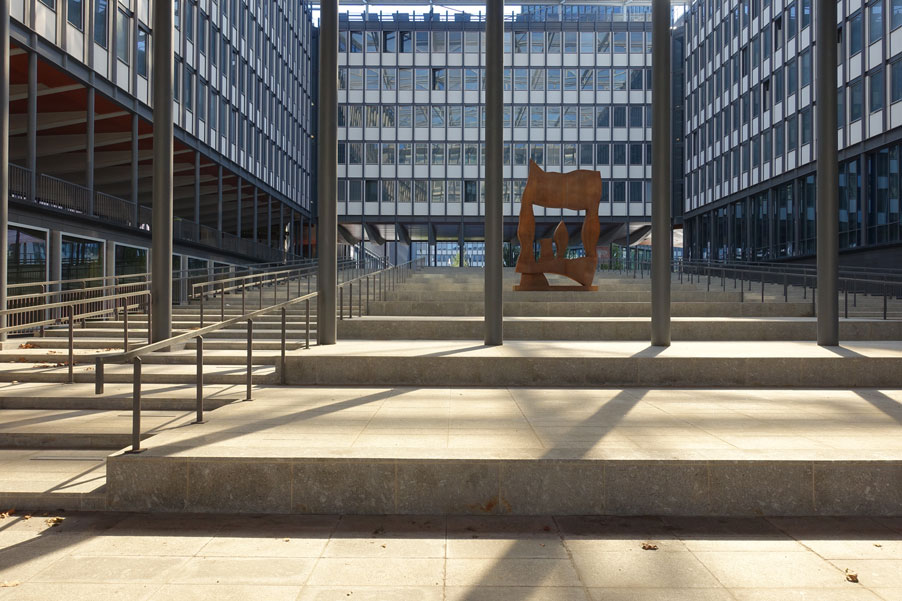https://doi.org/10.25547/E1DG-T046
This observation has been written by Sarah Milligan.
At a glance
| Title | Jussieu Call for Open science and bibliodiversity |
| Creators | Serge Bauin, Céline Barthonnat, Christine Berthaud, Thierry Bouche, Francois Cavalier, Gregory Colcanap, Odile Contat, Nathalie Fargier, Thierry Fournier, Anne-Solweig Gremillet, Frédéric Hélein, Odile Hologne, Emmanuelle Jannes-Ober, Jacques Lafait, Annie Le Blanc, Jean Francois Lutz, Sandrine Malotaux, Jacques Millet, Pierre Mounier, Jean-Francois Nominé, Christine Okret-Manville, Christine Ollendorff, Sébastien Respingue-Perrin, Julien Roche, Laurent Romary, Dominique Roux, Joachim Schopfel, Bernard Teissier, Armelle Thomas and Céline Vautrin |
| Publication date | 2017-10-10 |
| Keywords | open science; international policy; bibliodiversity; recommendations |
In October 2017, a group of French researchers and scientific publishing professionals working on the Open Access and Public Scientific Publishing task forces of the Bibliothèque scientifique numérique (BSN) published a call for open science and bibliodiversity. The Jussieu Call frames itself as building upon aims and challenges outlined in the Amsterdam Call for Action on Open Science (2016), the Joint Statement of UNESCO and the Confederation of Open Access Repositories (2016), the LIBER Statement in response to the Amsterdam Call (2016) and the International Council for Science’s report on open access (2014). Echoing the Secretary of State for the Dutch Minister of Science, Sander Dekker, that “the time for talking about open access is now past” (Press release, 2016), this document is a call to action. It outlines eight points designed to promote an open access scientific publishing model that fosters bibliodiversity and innovation:
- Open Access must be complemented by support for the diversity of those acting in scientific publishing – what we call bibliodiversity – putting an end to the dominance of a small number among us imposing their terms to scientific communities;
- The development of innovative scientific publishing models must be a budget priority because it represents an investment into services meeting the genuine needs of researchers in our digital age;
- Experiments should be encouraged in writing practices (publishing associated data), refereeing (open peer-reviewing), content editorial services (beyond-pdf web publishing) and additional services (text mining);
- The research evaluation system should be thoroughly reformed and adapted to the practices of scientific communication;
- More investment efforts in open source tools upon which these innovative practices are based should be made and coordinated;
- The scientific community needs a secure and stable body of law across different countries to facilitate the availability of text mining services and thus strengthen their use;
- The scientific communities must be able to access national and international infrastructures which guarantee the preservation and circulation of knowledge against any privatization of contents. Business models should be found which preserve their long-term continuity;
- Priority should be given to business models that do not involve any payments, neither for authors to have their texts published nor for readers to access them. Many fair funding models exist and only require to be further developed and extended: institutional support, library contributions or subsidies, premium services, participatory funding or creation of open archives, etc. (Jussieu Call, n.p.).
Since its publication, the Jussieu Call has been frequently referenced over Twitter, with many users expressing their support, and praising their institutions for signing the call or encouraging them to do so. The SNESUP-FSU, the national union for higher education in France, highlighted the Jussieu Call in their magazine’s fall 2017 issue; it was also featured in the popular science magazine, Sciences et Avenir.
At the time of writing, the Jussieu Call has been signed by 49 research institutions and scientific communities, including two Canadian institutions: Université de Montreal and Université Laval. It has also been signed by 14 scientific and technical information professional associations and organizations, including the Canadian Association of Research Libraries (CARL), which noted that the call aligns well with the objectives of their Scholarly Communications Roadmap; and 20 learned societies, scientific journals and editors, including Érudit and Association science et bien commun. Érudit and PKP released a joint statement of support for the Jussieu Call, which aligns with their conviction of the urgent need “to redefine the balance of power in the world of scholarly publishing for a free circulation of knowledge” (n.p.).
In addition to the institutional signatories, the Jussieu Call has been praised by Open Access advocate Peter Suber, and Executive Secretary of the Latin American Council of Social Sciences, Pablo Gentili. Suber wrote a blog post entitled, “Half a dozen reasons why I support the Jussieu Call for Open Science and Bibliodiversity” and specifically expressed support for the term bibliodiversity, which he described as an “ecosystem of free and open-source, interoperable components, compliant with open standards, offering robustness, modularity, flexibility, freedom to create better modules without rewriting the whole system, freedom to pick modules that best meet local needs, and freedom to scale up to meet global needs without first overcoming centralized constraints or unresponsive decision-makers” (n.p.).
Works Cited
“Jussieu Call for Open science and bibliodiversity.” 2017. jussieucall.org. http://jussieucall.org/.
Niemann, Tanja, and Brian Owen. 2017. “Érudit and PKP support the Jussieu’s Call for Open Science and Bibliodiversity.” Érudit. https://apropos.erudit.org/en/erudit-and-pkp-support-the-jussieus-call-for-open-science-and-bibliodiversity/.
“Press Release: All European scientific articles to be freely accessible by 2020.” 2016. Netherlands Presidency Council of the European Union. https://web.archive.org/web/20161007111302/http://english.eu2016.nl:80/binaries/eu2016-en/documents/press-releases/2016/05/27/all-european-scientific-articles-to-be-freely-accessible-by-2020/press-release-all-european-scientific-articles-to-be-freely.pdf
Suber, Peter. 2017. “Half a dozen reasons why I support the Jussieu Call for Open Science and Bibliodiversity.” Google Plus. https://plus.google.com/+PeterSuber/posts/DwXSjcDKGJA

